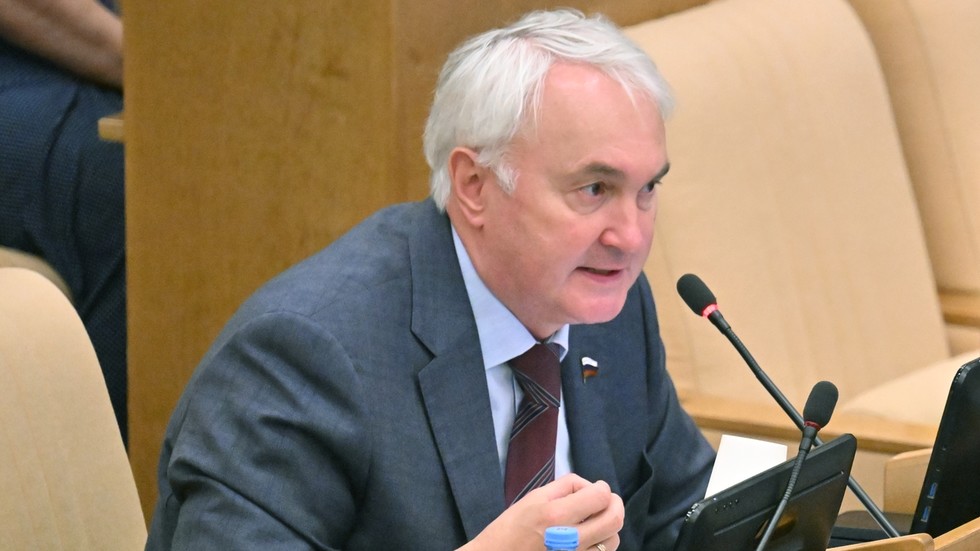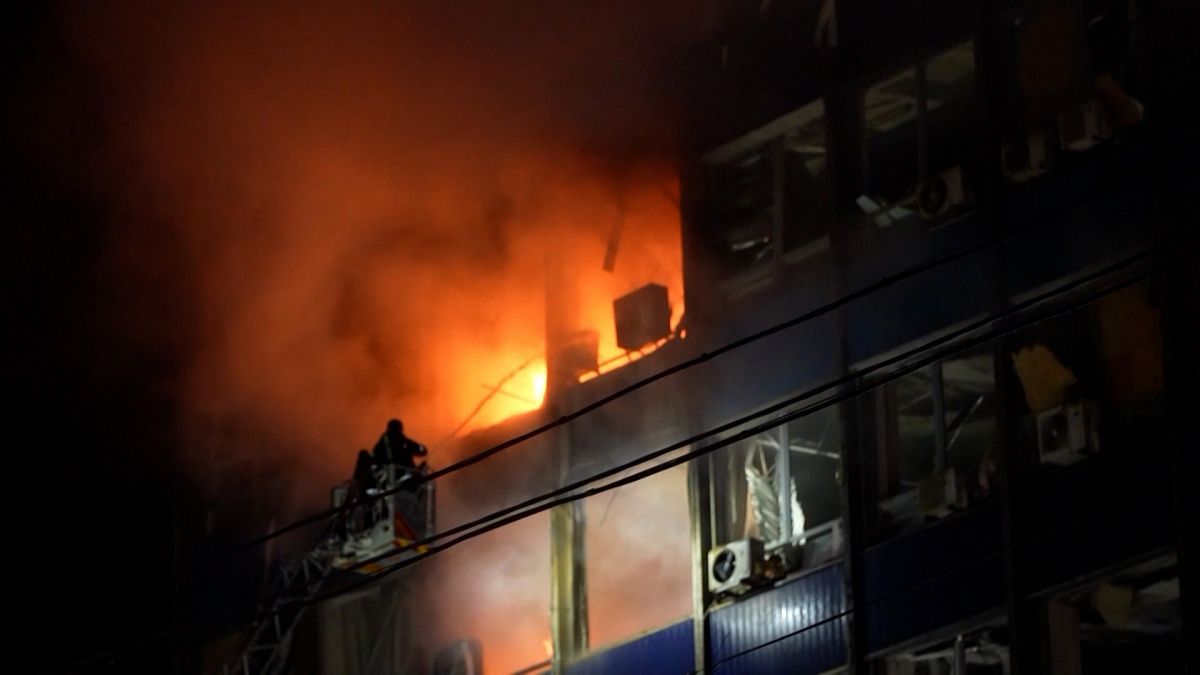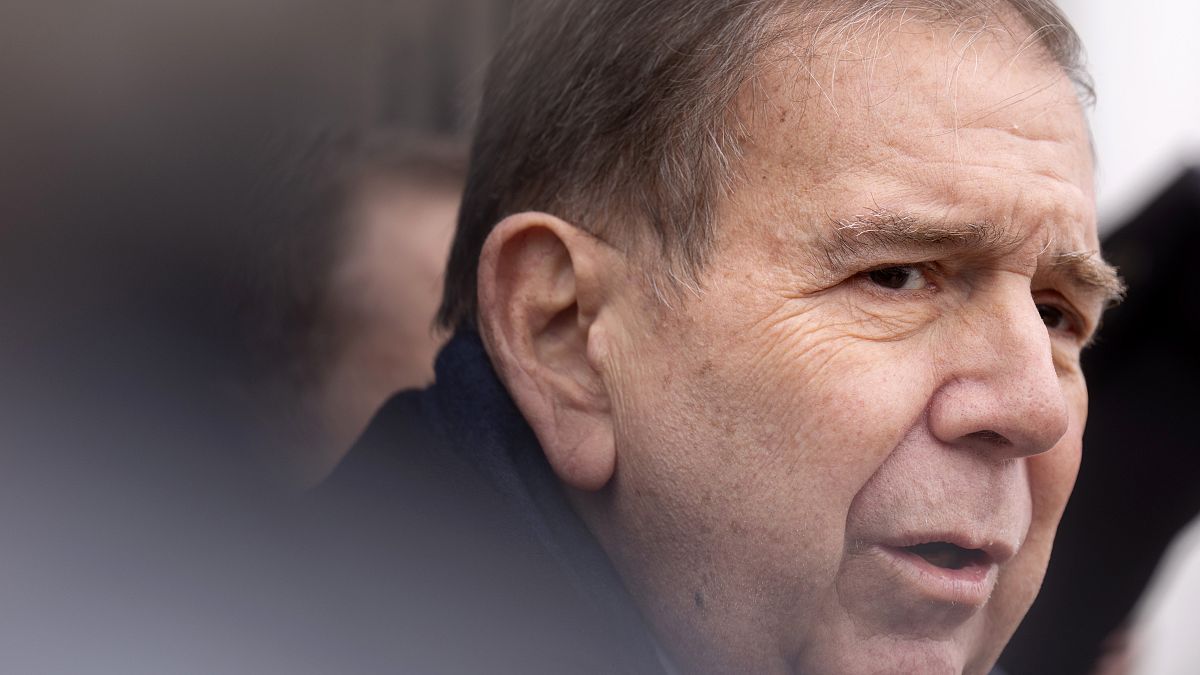Baku wants more EU investments and commitments to its natural gas potential as it looks for more fossil energy revenues to finance its ambitions to become the renewable energy leader of Eurasia. Meanwhile, Brussels' gas goals are not enough.
Azerbaijan has been a potential strategic partner for the EU since the end of the Soviet Union more than three decades ago.
Some 90% of Baku's exports are based on fossil fuel resources, and the EU needs natural gas that could replace the Russian supplies both right now and in the future.
In principle, from a business point of view, Baku and Brussels could be a perfect match.
Yet, the absence at COP29 of French President Emmanuel Macron and the European Commission President Ursula von der Leyen has gone against the host's expectations, President Ilham Aliyev.
In his opening keynote speech at COP29 in Baku, Aliyev said that “oil and gas are a gift from God, just like the sun, wind, and minerals," sending a clear message to those countries that are reluctant to establish stable natural gas trade relations with Azerbaijan.
In July 2022, when the EU took the first steps to reduce Russian gas imports, von der Leyen concluded an important natural gas supply deal in Baku.
The COP29 summit de facto stated that natural gas is still a strategic resource for Western countries, as prime ministers of Great Britain and Italy, Keir Starmer and Giorgia Meloni, were among the summit's key attendees.
For Meloni, the relationship with Baku is key to securing the country's energy future, as the Trans Adriatic Pipeline brings gas from Baku to the Southern Italian region of Apulia. The shareholders are Azerbaijani SOCAR, Belgian Fluxys, Italy’s SNAM, Spanish Enagás, and the UK’s BP. The latter are historical investors in Azerbaijan’s Caspian Sea reserves since the collapse of the Soviet Union.
Meanwhile, Baku has historically had good relations with Turkey, military cooperation with Israel (both countries are Baku’s weapons suppliers), and business ties with most Western countries. As for Russia, it remains a relevant political and economic partner for Azerbaijan.
Moreover, unclear perspectives over the high-scale application of gas and oil by the most advanced countries are encouraging Azerbaijan (like others) to invest its export revenues in its green transition and become the renewable energy leader in Eurasia.
Gas diplomacy and war in Ukraine
Since the beginning of Russia's full-scale invasion of Ukraine, the EU has increased the import of Azerbaijani gas while reducing its dependence on Russian gas.
The Paris-based International Energy Agency (IEA) reports that the export of Azerbaijan's natural gas to the EU increased by almost 20% between 2022 and 2023.
According to expectations for 2024 and 2025, the gas flow from Baku to the EU could grow even bigger, especially if the contract permitting the Russian gas transit through Ukraine is not renewed next January. Yet, Azerbaijan might want long-term assurances and not just serve as a means to bridge a gap.
“Azerbaijan wants two things from the Europeans: investments (on natural gas infrastructures) and long term contracts. Aliyev criticised the European Union for offering short term contract of two years or three years," Agha Bayramov, an Azerbaijani expert from the University of Groningen in the Netherlands, told Euronews.
Baku could suspect that the EU just needs a natural gas supply security network during wartime and for post-war adjustment. This is why some European countries are reluctant to sign long-term agreements.
In the summer of 2022, four months after the beginning of the war in Ukraine, the EU executive signed a deal with Baku to double Azerbaijan’s gas flow up to 20 billion cubic metres (bcm) by 2027.
"Today, with this new memorandum of understanding, we are opening a new chapter in our energy cooperation with Azerbaijan, a key partner in our efforts to move away from Russian fossil fuels," von der Leyen said at the time.
More than two years later, “Azerbaijan needs investments to upgrade the current interconnection systems for the main pipelines,” said Bayramov.
The interconnectors are crucial to bringing gas from the main pipelines to the countries willing to import it, for instance, to derive natural gas from the Trans Adriatic Pipeline to Bulgaria and other countries.
The idea is that if the EU wants more gas, it has to pay for the appropriate infrastructure.
“Aliyev’s argument is that this is not enough to pay the credits back and also to earn money from [this deal]. He is mostly worried about the fact that (Azerbaijan) won't receive the promised investments,” Bayramov explained.
Estimates say that Azerbaijan will need to invest €2-4 billion in compressors to allow the existing pipelines to reach the natural gas transport capacities required by the EU, which could be double the current 10 bcm.
So far, Azerbaijan has increased its exports to the EU by 3 bcm by reducing the internal consumption of its own gas and balancing it out with gas coming from Russia through an existing pipeline between the two former Soviet countries.
If the contract for the transit of Russian gas to the EU through Ukraine is not renovated, the southern Caucasus country could be called upon to become an energy backup by next January.
“Azerbaijan could play a role in that, but of course, not in the way of replacing the amounts of gas (from Russia) because they don't have enough capacity to replace it, because they don't have the extra 15 bcm," Yana Zabanova, a research associate at the Research Institute for Sustainability, Helmholtz Centre Potsdam, told Euronews.
"But by a kind of legal arrangement, they buy it from Russia, and then they relabel the gas, and then it continues flowing," she said.
How?
“There could be a legal swap. Azerbaijan buys Russian gas at the border with Ukraine. So it's officially Azerbaijani. It changes ownership, but it is the same gas. So Ukraine still gets transit fees” not from Russia, but from Azerbaijan, Zabanova explained.
Austria, Hungary, Slovakia, and Czechia are the main buyers of Russian gas transiting via Ukraine. They could turn to LNG gas, representing a drastic extra cost.
Money to go green
Azerbaijan has reached the status of regional power also thanks to its fossil fuel reserves and its strategic position between the Caucasus and the Caspian Sea.
Baku embarked on hosting the COP29 UN conference to build on its growing geopolitical influence, expecting significant political gains. Aliyev's government rejects the idea of being regarded as a mere fossil energy powerhouse autocracy.
“Azerbaijan doesn’t deny that it is an oil and gas producing country, but we should not be treated just on oil and gas facts, we should be treated on how we are using our resources for the green transformation,” Hikmet Hajiyev, foreign policy advisor to the President of Azerbaijan, told Euronews.
Being a fossil energy powerhouse is no longer enough to grant Azerbaijan the international standing it aims for.
Reinvesting gas and oil revenues to finance the green transition could boost Azerbaijan and Aliyev's influence in the Caucasus and Central Asia, as well as a way to diversify its economy for the future.
Other countries in the region, like Kazakhstan and Uzbekistan, have already started their green transition.
“It’s a matter of catching up. And so now what Azerbeijanis are trying to do is to implement this very large scale projects with big companies. Not just like Kazakhstan that started with 10 or 50 megawatts," Zabanova said.
"Azerbaijan wants projects of 200 or 300 megawatts with massive offshore wind parks in the Caspian Sea, something that could be the frontrunner in the region because no one else is doing it yet."
Big companies, especially from the Gulf region, like Abu Dhabi’s Masdar, have expressed their interest in participating in this trans-Eurasian energy project as investors.
Baku's goal is to use more renewable energy at home because its electricity sector is currently completely gas-dominated. While it wants to reduce domestic consumption, it still needs to export more gas to the EU because Azerbaijan is looking to increase the country’s revenues.
The Nagorno-Karabakh issue plays a major role even when it comes to both fossil and renewable energy, as Azerbaijan needs the funds for what it calls the reconstruction of the region.
“The military budget has been exploding, the reconstruction of Nagorno-Karabakh, of the reassimilated territories, will cost billions to the state budget,” Zabanova said.
“There's big plans for deployment of large scale renewable facilities also in the Karabakh. And present it as a new net zero emissions zone by 2050."
"That's written in the national and determined contribution under the Paris Agreement. So it's like an additional layer of legitimacy and prestige," she concluded.

 1 month ago
14
1 month ago
14






 We deliver critical software at unparalleled value and speed to help your business thrive
We deliver critical software at unparalleled value and speed to help your business thrive






 English (US) ·
English (US) ·